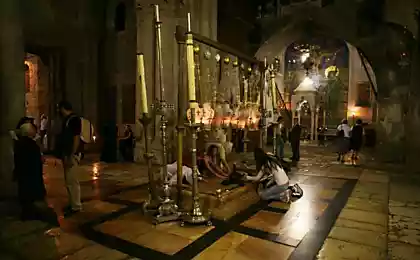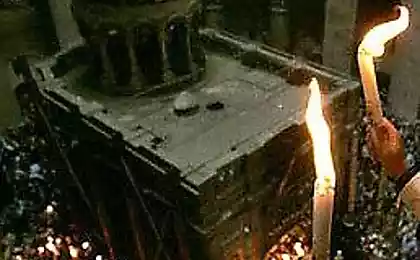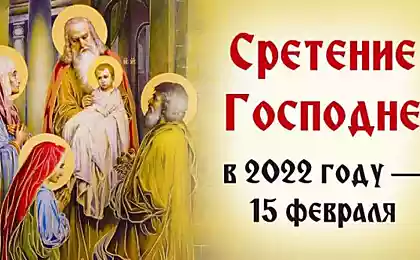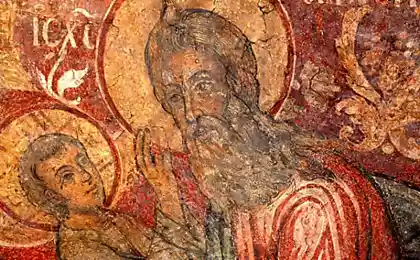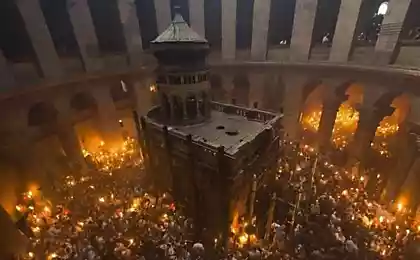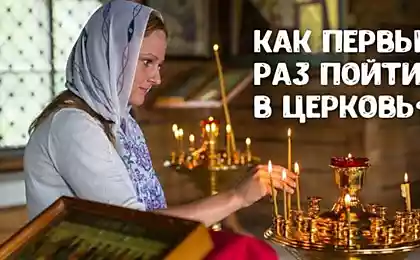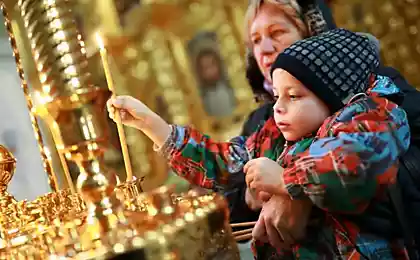234
Why Candles in the Temple Cannot Be Free
The candle in the church is the sacred property of Orthodoxy. Put a candle in the church This is not just a tribute to traditions, it is a symbol of our spiritual union with the Church and with the Lord. Since we buy candles, it is a kind of voluntary sacrifice of man to God and the temple. This is a small evidence of our faith and participation in church life.

However, many parishioners (and others) complain that candles in the church are not free. They say that in the Gospel it is written that trade in the temple is prohibited, and only unscrupulous priests profit from the sale of candles and other paraphernalia. How close is this to the truth and why can’t candles be free? Editorial "Site" answers these questions.
Come to the temple and pray, candlestick These are commonplace things for a believer. Faithful parishioners, especially those involved in church life, are unlikely to ask questions about the cost of candles. The fact is that they know perfectly well how everything is tripled and why this modest fee is set. However, for others, such questions often arise.
Most often, the question goes something like this: Why is there a trade in candles, icons and other things in the church? The Bible says that God forbids all trade in the temple.

Jesus entered the temple of God and drove out all those who sold and bought in the temple, and overturned the tables of the changers and the benches of the selling pigeons. It seems that everything is obvious, but here you need to delve a little into the structure of the Old Testament temple of that time. Then there was a courtyard in the temple where there was an altar on which sacrifices were made.
There were merchants who sold birds and other animals for bloody purposes. And it was all part of the temple. The noise, the hum and the cries of the market interfered with prayers, which angered Jesus, who decided to disperse this bazaar. The current candle box is in no way comparable to the bazaar where animals were sold.

The sale of candles in the temple does not interfere with the liturgy. In addition, they are often located in a porch or on the street in a separate room. There is a difference, and it is huge. The issue of trade is still open. Can't we do without that?
This was explained in detail by the priest Dionysius Svetchnikov. He said candle boxes are convenient primarily for parishioners. The fact is that if all the candle boxes disappear from all the temples overnight, it will bring us a lot of inconvenience. There will be no place to buy candles, you will need to bring them with you. But where do you find them if you don’t have them in the markets?

The same with icons, if they are not in churches, then church production will stop. We will remain without icons, and without crosses, which are made according to church canons. We can continue this list for a long time, but I think the point is clear. Candle boxes are in churches because we need them.
610189
But this is not enough, everyone is interested in the question of money. Why doesn’t the church give out candles and icons? Why is he demanding a fee? And then we stumble upon one near-church myth that has existed since time immemorial - everything should be free in the church. But how can it be free if the temple needs to be maintained?
The temples seem to exist on their own. In fact, the temple requires serious investments: repairs, payment for utilities, salaries for clergymen and temple workers, assistance to those in need. And that's just the beginning of the list. The priests need to feed themselves and their families, just like everyone else.

Why don’t they work for the glory of God and give up their wages? The same reason we don't. Everyone has a family and obligations to them. Previously, in churches there was the concept of tithes, when the temple carried a tenth of their earnings. Now this is not the case, which is why we pay for candles, icons, books and so on.

Only in candle boxes and take money for the maintenance of the temple, they have nowhere else to take. It has always been so, just a little different in times past. There was almost no money, so people brought to the temple the fruits of their efforts: bread, homemade wine, butter for lamps or collected resin. A person brought part of his work to the temple as gratitude for the help of the Lord.

Now the same thing is happening, we give some of the fruits of our labor as gratitude. However, the fruit of our work today is mostly money. We give them to the temple to find the items we need. It's some kind of victim. At the church threshold, parishioners make a sacrifice in the form of money, and already inside the temple go with a candle in hand.
That's all you need to understand. And to understand that all these worldly questions have no place in the temple. We do not come to the temple for this, but for the sake of prayer and unity with the Lord. Never forget that!
People often have different questions. For example, recently we talked about whether it is possible to blow out church candles.
We also talked about how to behave in the church.
Do you think candles should be sold in temples?

However, many parishioners (and others) complain that candles in the church are not free. They say that in the Gospel it is written that trade in the temple is prohibited, and only unscrupulous priests profit from the sale of candles and other paraphernalia. How close is this to the truth and why can’t candles be free? Editorial "Site" answers these questions.
Come to the temple and pray, candlestick These are commonplace things for a believer. Faithful parishioners, especially those involved in church life, are unlikely to ask questions about the cost of candles. The fact is that they know perfectly well how everything is tripled and why this modest fee is set. However, for others, such questions often arise.
Most often, the question goes something like this: Why is there a trade in candles, icons and other things in the church? The Bible says that God forbids all trade in the temple.

Jesus entered the temple of God and drove out all those who sold and bought in the temple, and overturned the tables of the changers and the benches of the selling pigeons. It seems that everything is obvious, but here you need to delve a little into the structure of the Old Testament temple of that time. Then there was a courtyard in the temple where there was an altar on which sacrifices were made.
There were merchants who sold birds and other animals for bloody purposes. And it was all part of the temple. The noise, the hum and the cries of the market interfered with prayers, which angered Jesus, who decided to disperse this bazaar. The current candle box is in no way comparable to the bazaar where animals were sold.

The sale of candles in the temple does not interfere with the liturgy. In addition, they are often located in a porch or on the street in a separate room. There is a difference, and it is huge. The issue of trade is still open. Can't we do without that?
This was explained in detail by the priest Dionysius Svetchnikov. He said candle boxes are convenient primarily for parishioners. The fact is that if all the candle boxes disappear from all the temples overnight, it will bring us a lot of inconvenience. There will be no place to buy candles, you will need to bring them with you. But where do you find them if you don’t have them in the markets?

The same with icons, if they are not in churches, then church production will stop. We will remain without icons, and without crosses, which are made according to church canons. We can continue this list for a long time, but I think the point is clear. Candle boxes are in churches because we need them.
610189
But this is not enough, everyone is interested in the question of money. Why doesn’t the church give out candles and icons? Why is he demanding a fee? And then we stumble upon one near-church myth that has existed since time immemorial - everything should be free in the church. But how can it be free if the temple needs to be maintained?
The temples seem to exist on their own. In fact, the temple requires serious investments: repairs, payment for utilities, salaries for clergymen and temple workers, assistance to those in need. And that's just the beginning of the list. The priests need to feed themselves and their families, just like everyone else.

Why don’t they work for the glory of God and give up their wages? The same reason we don't. Everyone has a family and obligations to them. Previously, in churches there was the concept of tithes, when the temple carried a tenth of their earnings. Now this is not the case, which is why we pay for candles, icons, books and so on.

Only in candle boxes and take money for the maintenance of the temple, they have nowhere else to take. It has always been so, just a little different in times past. There was almost no money, so people brought to the temple the fruits of their efforts: bread, homemade wine, butter for lamps or collected resin. A person brought part of his work to the temple as gratitude for the help of the Lord.

Now the same thing is happening, we give some of the fruits of our labor as gratitude. However, the fruit of our work today is mostly money. We give them to the temple to find the items we need. It's some kind of victim. At the church threshold, parishioners make a sacrifice in the form of money, and already inside the temple go with a candle in hand.
That's all you need to understand. And to understand that all these worldly questions have no place in the temple. We do not come to the temple for this, but for the sake of prayer and unity with the Lord. Never forget that!
People often have different questions. For example, recently we talked about whether it is possible to blow out church candles.
We also talked about how to behave in the church.
Do you think candles should be sold in temples?
